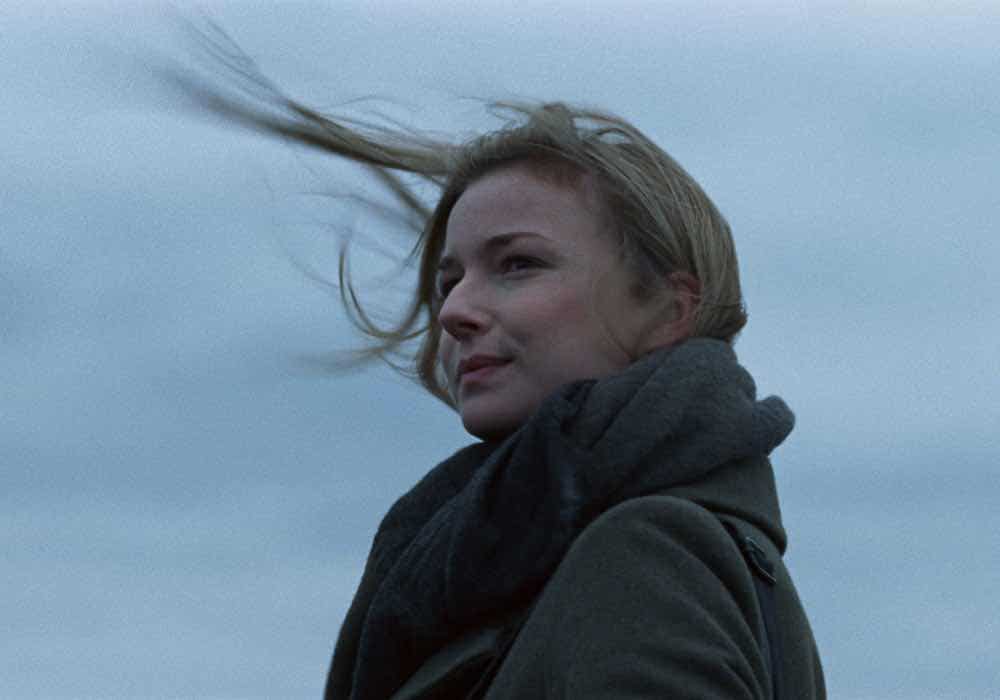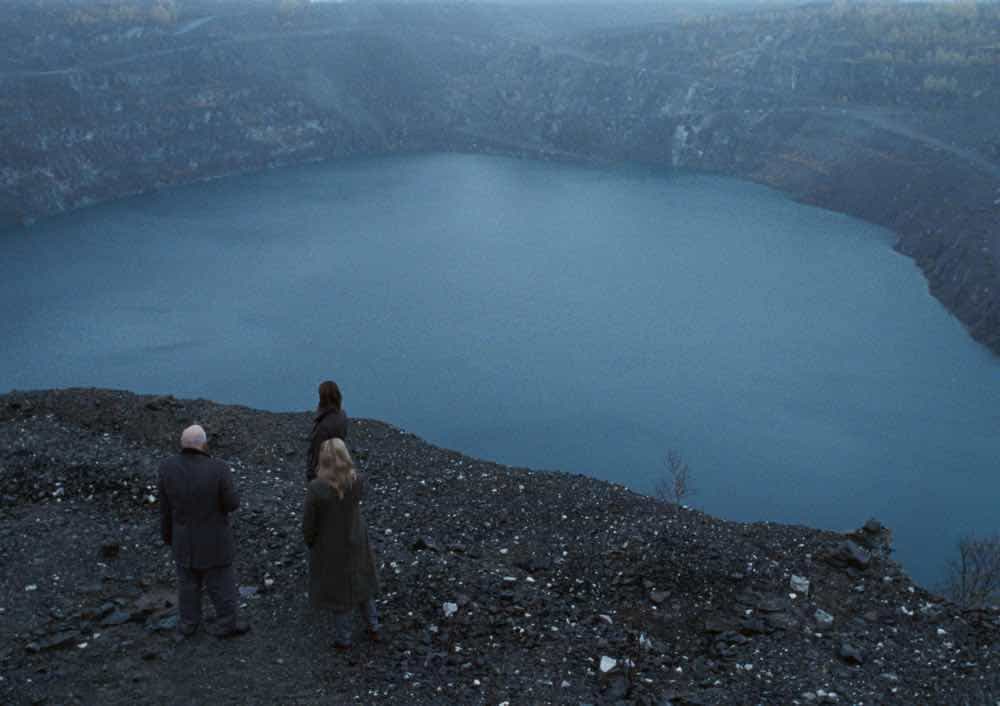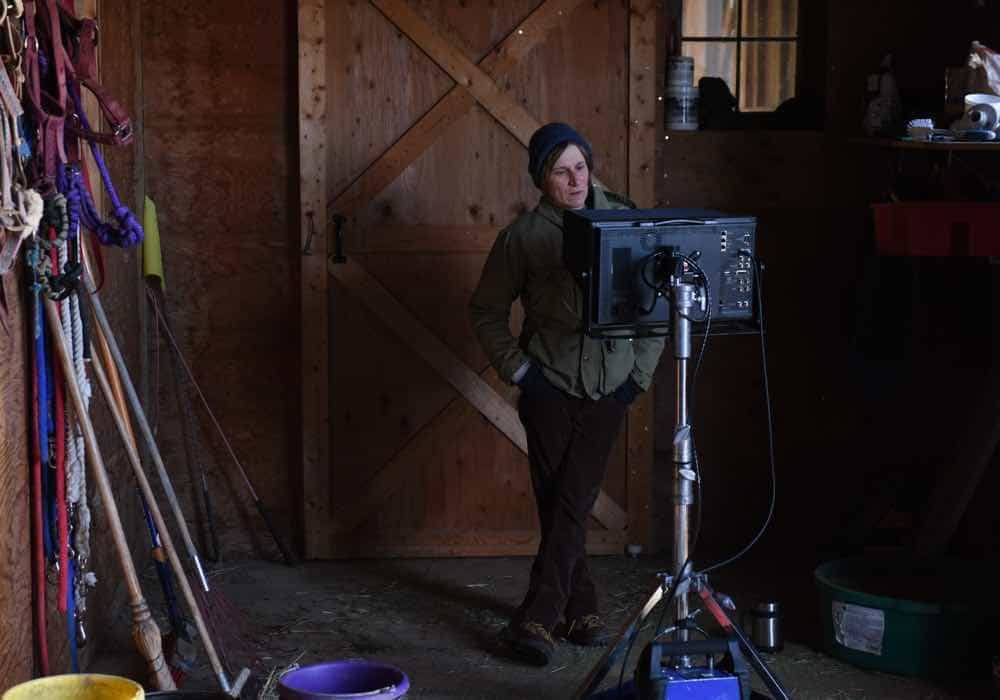Québécois writer-director Chloé Robichaud’s discusses her sophomore feature, Boundaries (Pays), which tackles what it’s like to be a woman in politics. The film is now available on VOD in Canada.

Québécois writer-director Chloé Robichaud’s sophomore feature, Boundaries (Pays), tackles what it’s like to be a woman in politics. Set in a tiny fictional country off the Canadian Maritimes, Besco, the film follows three women — a newly elected Québécois MP, Félixe (Nathalie Doummar), the President of Besco (Macha Grenon), and French-Canadian facilitator Emily (Emily VanCamp) — participating in a negotiation between Canada and Besco over the use of natural resources.
All three protagonists face sexism in the workplace, whether it’s comments on their looks or criticism over their abilities as mothers. The film’s English title, Boundaries, refers as much to the boundaries between countries as the boundaries the women are willing to put up in their lives and the sacrifices they’re willing to make. Although the film lags at times, and falters with the occasional overwrought metaphor, a story about smart, capable women in politics, and the real choices they face, is a rarity and a gem.
When the film premiered at the Toronto International Film Festival in September, I sat down with writer-director Robichaud to discuss the making of the film. It’s now available on iTunes/VOD across Canada.
Seventh Row: What got you interested in making this film?
Chloé Robichaud: I don’t think this film is about politics. It’s about politicians. I was intrigued by politicians. I want to talk about women in politics. I’m always intrigued by how we have to balance our private life and our professional life, and more so as women, since the conventions of what it is being a woman and being a man is all a construct. Politicians are a great way to express that because they have huge responsibilities. They’re in the public eye. We may not share the same values but I have a lot of respect for politicians. They do it for the people, for the right reasons, and they have to make a lot of sacrifices.
[clickToTweet tweet=”‘I don’t think this film is about politics. It’s about politicians.’ – Chloé Robichaud” quote=”I don’t think this film is about politics. It’s about politicians.”]
Seventh Row: You’ve created this fictional country off the Maritimes. What was the thinking behind that and making Canada the big bad power that we almost never are?
Chloé Robichaud: In the mining industry, Canada is a tough player. That’s what I saw when I did research. I wouldn’t say we’re a bully, but Canada is a tough player. I chose to put the story in a fictional island because I want everyone to relate. If it was set in Quebec, we’d say it’s about political issues in Quebec. I was inspired by a lot of issues that came from Quebec, Canada, and even elsewhere. I want everyone to relate to something, to identify with the issues in the film.

Seventh Row: How did you find the film’s locations?
Chloé Robichaud: I travel a lot in the east of Canada looking for my island. I needed to find a place that was different from what we have in mind as Canada, so that we can believe that this island does exist. I arrived in Fogo Island in Newfoundland, and it felt so unique. I loved the aridity of the climate. It’s so poetic at the same time. There’s a lot of icebergs. I thought icebergs are the perfect metaphor of the environment and climate change right now. And the wind, it was hard to shoot in the wind. We had to stay really focussed just to stay on the ground. But I think the wind gives the sense of the force that’s around the characters. They’re struggling.
Seventh Row: I love the way the film switches between French and English, sometimes in the same scene or even the same sentence.
[clickToTweet tweet=”‘I wanted to make it a show, because politics is about show.’ – Chloé Robichaud” quote=”I wanted to make it a show, because politics is about show.”]
Chloé Robichaud: When I arrived in Montreal 10 years ago for school at Concordia, it was all English-French-English-French. It was new to me. I was from Quebec City, and we were all speaking just French between us. I think it represents a generation that is mostly bilingual. We all have a bit of English. A lot of parts of Canada have an idea of what is the French language. So I think it represents our country.
Seventh Row: The English title of the film is Boundaries, which made me think not just of the land, but about what boundaries the women are willing to accept in their own lives. How did you think about creating these three women with different political positions but also different experiences regarding how they view their personal relationships?
Chloé Robichaud: I realized I needed a spectrum of experiences and choices. If the film was just all about Félixe, I would say just one thing. I wanted to say that they will each make a different choice, and that’s what I would like for women to be able to do. I wanted them to be able to express their identity. So I chose three characters. They don’t have the same age. They don’t have the same political experience. They don’t have the same background. I thought I was saying more by balancing these three women.
Read more: Director Philippe Falardeau discusses his political satire My Internship in Canada >>
Seventh Row: Did you feel there was something missing in cinema regarding stories about women in politics?
Chloé Robichaud: When I had the idea, I wasn’t saying, “OK, I want to do something that was never done.” But when I started to write, I wondered, “I think it’s kind of new.” I liked the rarity of it. I like complex characters. I always felt different so I’m attracted to these not really typical characters.
[clickToTweet tweet=”‘I had the idea of the jazz…jazz is about improv. And I thought, politics is improv.’ – Robichaud” quote=”I had the idea of the jazz music, because jazz is about improv. And I thought, politics is improv.”]
Seventh Row: A lot of the film involves characters sitting around in rooms, strategizing, arguing, and talking. How did you think about shooting that in a dynamic way?
Chloé Robichaud: I knew it would be a challenge when writing it. I didn’t want it to be too intellectual. If you want to, you can find really political dialogues and have fun with it. But I wanted to make it a show, because politics is about show. I chose to set them in a school. I had the idea of the jazz music, because jazz is about improv. And I thought, politics is improv. We’re just bouncing ideas to each other. There’s no rhythm to a mediation. So I thought jazz was great for that and would stimulate the spectator.
Read more: What does Canada’s Top Ten of 2016 say about Canadian Cinema? >>
Seventh Row: How did you put together the cast for the film?
Chloé Robichaud: Some of them were just actors I loved like Rémy Girard, Yves Jacques, that were just meant for the role. I was so glad they wanted to be part of it. Emily [van Camp], we had a conversation between producers looking for someone who speaks French and English. They suggested Emily Van Camp. I thought that was so amazing. I think she’s so sensitive and brilliant. It’s her first French speaking part. And Nathalie Doummar who plays Félixe, I met in the audition. She’s great. She has a charisma. She’s so attentive. So it’s a mix of auditions and feeling, intuition.
Seventh Row: All of the women in the film are capable professionals, but someone is always trying to reduce them to stereotypes or objectify them, like “Oh, you’re so pretty.” How did you approach showing their struggles?
Chloé Robichaud: I talked with women in politics. I read some books by women in politics. They said there’s a quick complicity between women in politics for that reason. They share this common reflection and inner struggles. Even me, as a woman filmmaker, I’m often asked what it is to be a woman behind the camera. Even when I was in school, I remember we had a filmmaker who came for a day to talk about her job. She said, “You know, if you want kids, don’t pursue cinema.” I was like, “I want kids! Why can’t I, as a woman, have kids and have a job that I want even though it’s a job with huge responsibilities?”
Read more: Québecois writer-director Anne Émond talks Nelly >>
Read more: Breaking boundaries in Kelly Reichardt’s Certain Women >>

